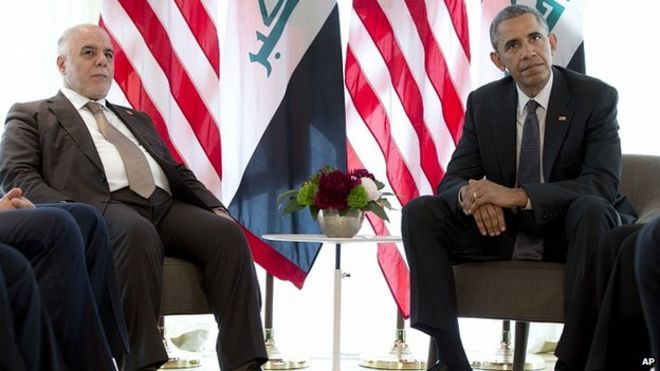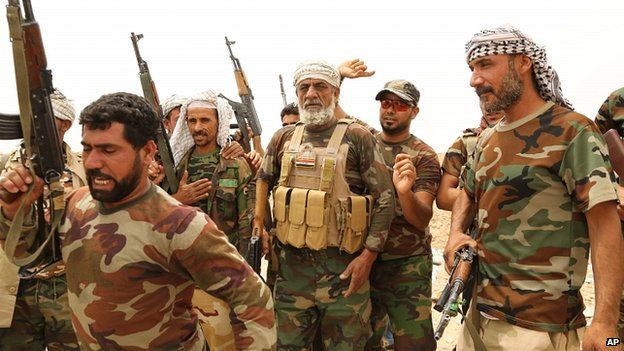
President Obama met Iraqi Prime Minister Haider al-Abadi on the sidelines of the G7 summit
The US does not yet have a “complete strategy” for helping Iraq regain territory from Islamic State (IS), President Barack Obama has said.
He said the Pentagon was reviewing ways to help Iraq train and equip its forces.
But Mr Obama said a full commitment to the process was needed by the Iraqis themselves.
He had earlier met Iraqi Prime Minister Haider al-Abadi on the sidelines of the G7 summit in Germany.
IS has recently made gains in Iraq despite US-led coalition air strikes.
In May the militants seized Ramadi, the capital of Anbar, Iraq’s largest province, as well as the Syrian town of Tadmur and the neighbouring ancient ruins of Palmyra.
US officials cited a lack of training as a major factor in the fall of Ramadi.
But Mr Obama said that the 3,000 US service personnel in Iraq sometimes found themselves with “more training capacity than we’ve got recruits”.
“We don’t have, yet, a complete strategy, because it requires commitments on the part of Iraqis as well about how recruitment takes place, how that training takes place,” Mr Obama told a news conference.

The Iraqi government is turning to Shia militias to hold back the IS advance
“We want to get more Iraqi security forces trained, fresh, well-equipped and focused and (Mr) Abadi wants the same thing so we’re reviewing a range of plans for how we might do that.”
Mr Obama said all countries in the international coalition were ready to do more to help train Iraqi security forces.
Earlier, UK Prime Minister David Cameron said Britain was sending an extra 125 military trainers to Iraq.
Last month, US Defence Secretary Ash Carter said the loss of Ramadi was, in part, due to the Iraqis’ lack of a “will to fight”.
Iraq has become increasingly reliant on Iranian-backed Shia militias to take on IS in recent months.
The move has raised fears of worsening sectarian tensions as the militias try to drive the jihadist fighters out of predominantly Sunni areas like Anbar.
BBC
 Q FM Africa's Modern Radio
Q FM Africa's Modern Radio